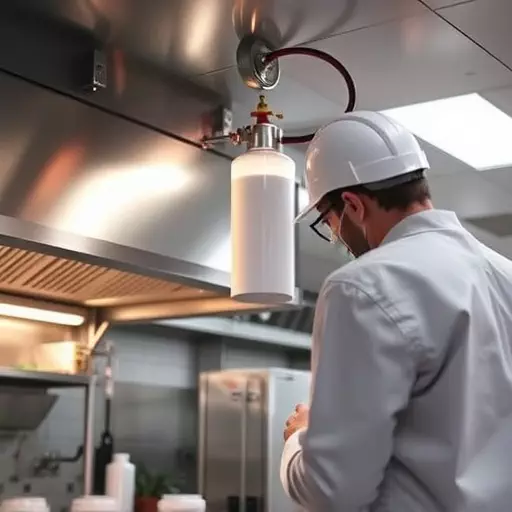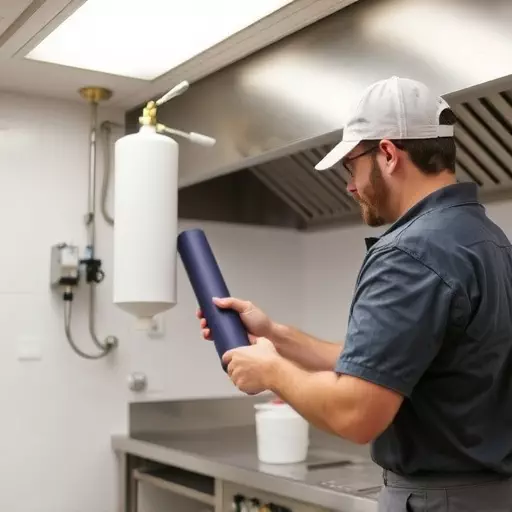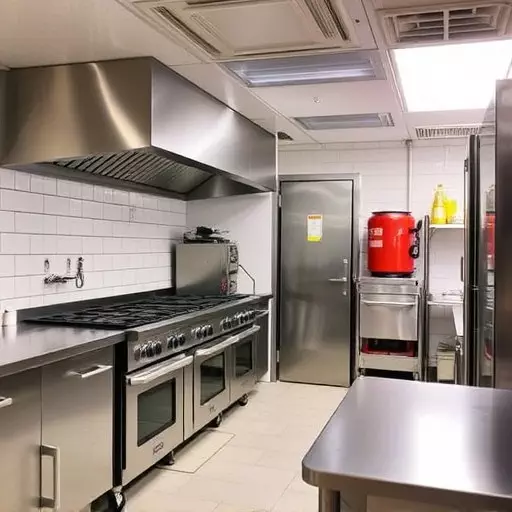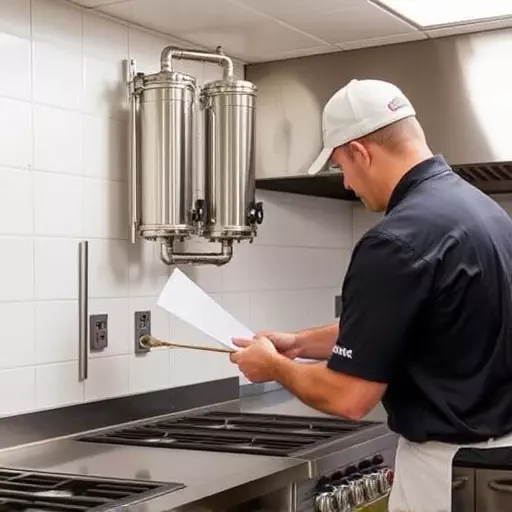Regular kitchen suppression inspections in Spring Lake are essential for fire safety, ensuring systems comply with codes and are ready to combat grease fires. These annual checks by professionals cover detectors, nozzles, and agents, prioritizing employee and customer protection. By integrating these inspections into schedules, businesses demonstrate commitment to safety, minimizing insurance claims and risks, while residents benefit from enhanced emergency response times.
“Annual fire suppression safety training is an indispensable practice, especially in high-risk areas like Spring Lake. This article delves into the critical aspects of kitchen suppression systems, highlighting their role as an essential component of fire safety. We explore the significance of regular inspections and maintenance to ensure compliance with safety standards. Additionally, practical tips for effective fire suppression training and prevention are provided, empowering residents and businesses in Spring Lake to safeguard against potential culinary blazes.”
- Understanding Kitchen Suppression Systems: An Essential Component of Fire Safety
- The Importance of Regular Inspection and Maintenance for Compliance
- Practical Tips for Effective Fire Suppression Training and Prevention in Spring Lake
Understanding Kitchen Suppression Systems: An Essential Component of Fire Safety

Understanding kitchen suppression systems is a crucial aspect of fire safety in any commercial or residential space, especially after completing annual fire suppression safety training. These systems are designed to suppress and extinguish fires in kitchens, where grease fires and other cooking-related hazards are prevalent. A well-maintained kitchen suppression system can mean the difference between a minor inconvenience and a major disaster.
Regular inspections, such as those offered by professional services in Spring Lake, are essential for ensuring these systems remain effective. Kitchen suppression inspection includes thorough checks of the system’s components, including detectors, nozzles, and the suppression agent itself. Compliance checks guarantee that the system is up to code, allowing property owners and managers to address any issues promptly. This proactive approach to fire safety not only protects lives but also ensures business continuity and minimizes potential insurance claims.
The Importance of Regular Inspection and Maintenance for Compliance

Regular fire suppression system inspections in commercial kitchens, like those in Spring Lake, are paramount for maintaining safety and regulatory compliance. These inspections ensure that critical components such as sprinkler heads, pull stations, and fire extinguishers are functioning properly and ready to deploy when needed. A Kitchen Suppression Inspection is an essential step to mitigate risks and protect against potential fires, which can cause devastating damage in a matter of minutes.
Compliance checks should be conducted at least annually to verify that all equipment meets the necessary standards set by local fire safety regulations. By staying up-to-date with these inspections, businesses demonstrate their commitment to fire safety, not only safeguarding their premises but also ensuring the well-being of employees and customers.
Practical Tips for Effective Fire Suppression Training and Prevention in Spring Lake

Spring Lake residents and businesses should prioritize fire suppression safety by integrating regular inspections into their routine maintenance schedules. A thorough Kitchen Suppression Inspection Spring Lake is crucial for identifying potential hazards and ensuring that fire suppression systems are operational and compliant with local regulations. This proactive approach can significantly mitigate risks, as promptly addressing issues could mean the difference between a minor setback and a major disaster.
During these inspections, focus on verifying the condition of kitchen suppression systems, including the detection devices, piping, and extinguishers. Regular maintenance includes testing sprinkler heads for blockages or damage, inspecting hoses for wear and tear, and ensuring all components are in working order. Additionally, educating staff or residents about Fire Suppression Compliance Checks and best practices for fire prevention in the kitchen can foster a culture of safety, ultimately contributing to faster response times and reduced damage during emergencies.


